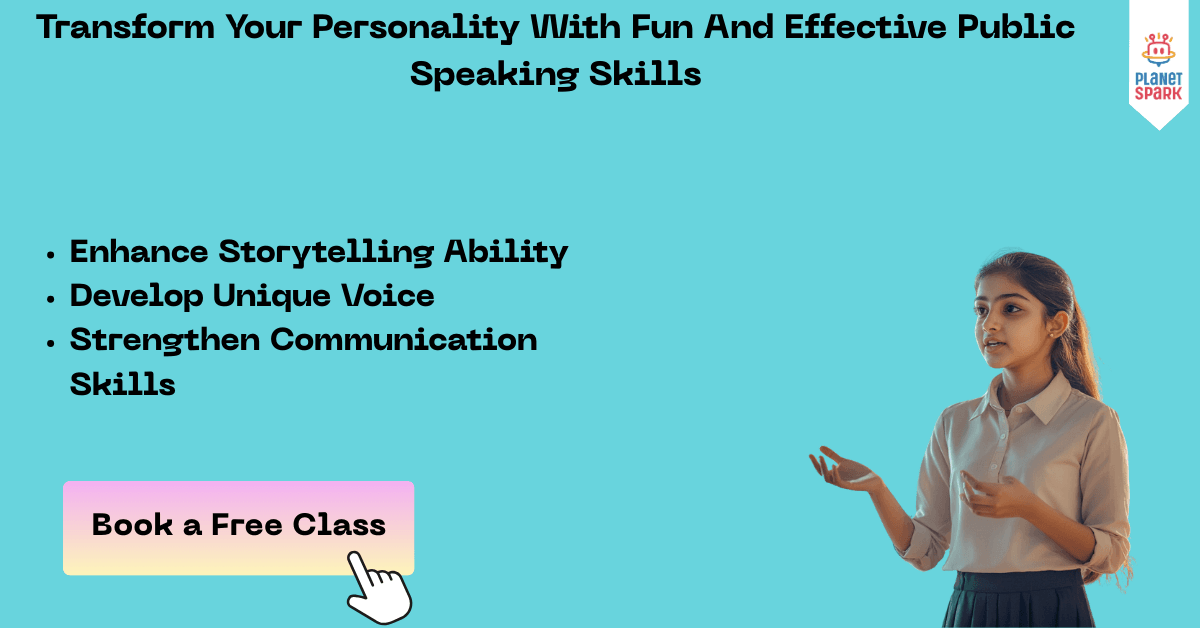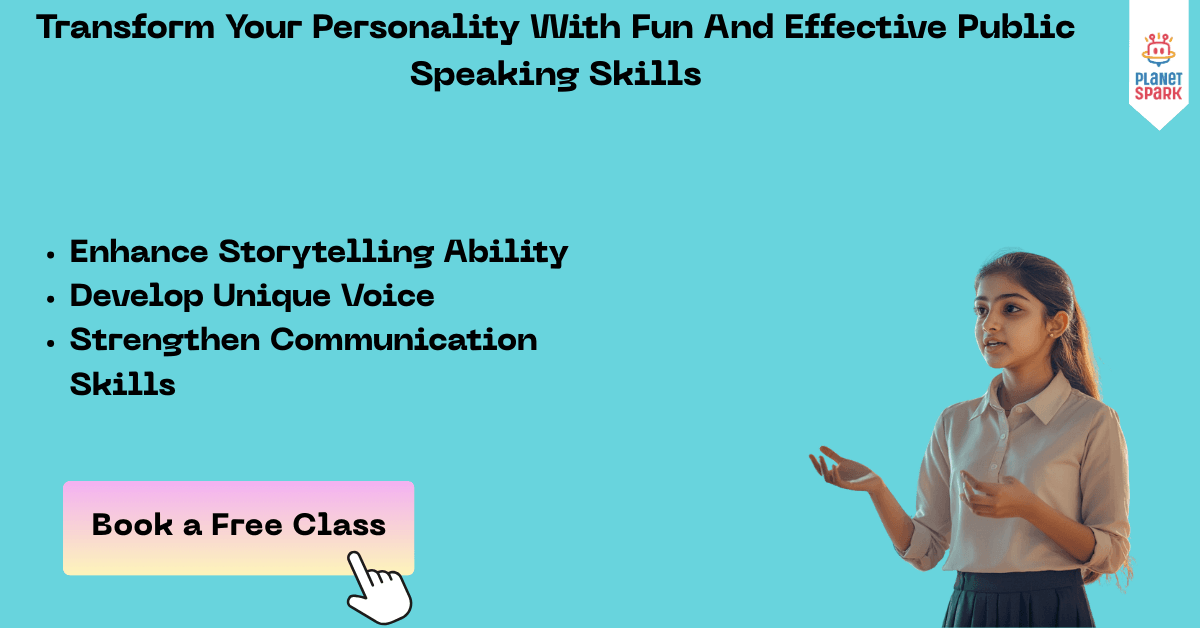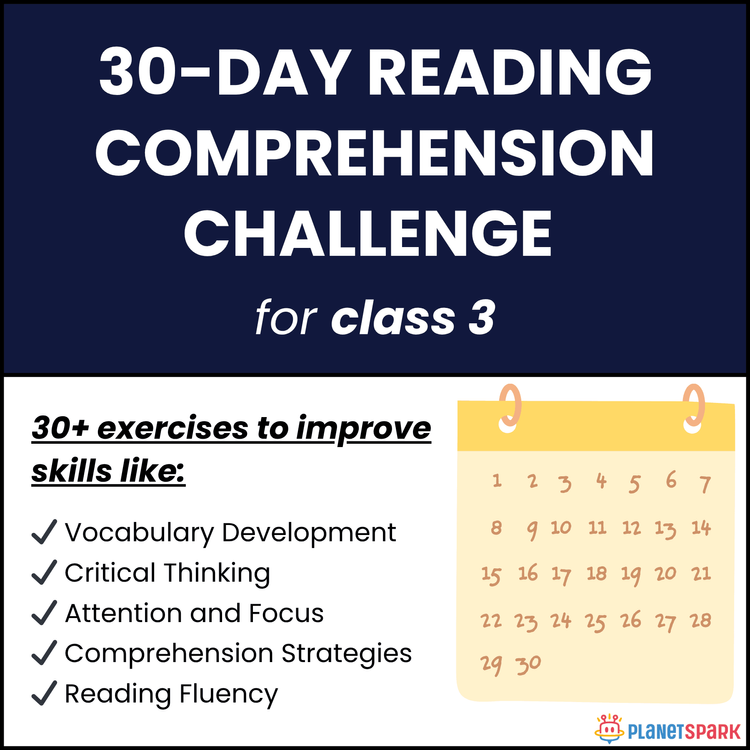How to Build Your Personality – Simple and Effective Tips for Kids & Teens

Table of Contents
- What Does “Personality” Mean?
- Why Is Building Personality Important?
- Key Factors Influencing Personality Development
- How to Build Your Personality: 12 Proven Strategies
- How to Build Confidence in Personality Development
- Building Personality for Students and Young Learners
- Online vs Offline Personality Development
- Role of Communication in Building Personality
- Real-Life Examples of Personality Development
- How PlanetSpark Helps You Build a Winning Personality
- FAQs on How to Build Your Personality
Personality isn’t something you’re simply born with, it’s something you can actively shape and improve. The way you think, act, speak, and even carry yourself determines how others perceive you. Whether you’re a student, a professional, or simply someone looking to evolve into your best self, knowing how to build your personality is key to personal success and lasting relationships.
In this blog, we'll explore:
- What personality means
- Why building personality is important
- Key factors influencing personality development
- Practical tips to enhance your personality
- How to build confidence and communication skills
- Role of habits, mindset, and learning
- How PlanetSpark helps you build your personality
Let’s dive in.
What Does “Personality” Mean?
Personality refers to the patterns of thoughts, feelings, and behaviors that make a person unique. It includes traits like confidence, attitude, communication skills, emotional intelligence, and decision-making abilities. According to the American Psychological Association (APA), personality involves individual differences in characteristic patterns of thinking, feeling, and behaving.
Some people are naturally outgoing and expressive, while others are more introverted and thoughtful. Both are valid types of personality. However, the key is to develop a well-rounded personality that helps you thrive in social, academic, and professional settings.

Why Is Building Personality Important?
Wondering why personality development is important? Here’s why:
1. Boosts Confidence
A strong personality makes you feel more self-assured in any situation.
2. Enhances Communication
You express your ideas more clearly and build better relationships.
3. Improves Leadership Skills
A well-developed personality is a key trait of successful leaders.
4. Better Career Opportunities
Employers seek individuals with strong interpersonal and communication skills. A study by Harvard University, the Carnegie Foundation, and Stanford Research Center found that 85% of job success comes from soft skills, like communication and personality, while only 15% comes from technical skills.
5. Supports Mental Health
Developing self-awareness and emotional intelligence leads to better mental well-being.
Want to boost your child’s confidence and communication skills? Enroll in PlanetSpark’s Personality Development Course today and get started with a free trial session!
Key Factors Influencing Personality Development
Many elements shape who you are, including:
1. Environment
Your surroundings, family, school, culture, and community significantly impact your behavior and outlook.
2. Experiences
Your past experiences (positive or negative) shape how you respond to situations. This is where resilience and adaptability come in.
3. Education and Learning
Learning how to improve personality through education enhances both soft and hard skills.
4. Self-Reflection
Regular self-analysis helps you recognize your strengths and weaknesses.
5. Social Interactions
The way you communicate and build relationships affects your emotional intelligence and confidence.
How to Build Your Personality: 12 Proven Strategies
1. Cultivate Self-Awareness
Begin by understanding your thoughts, emotions, and behaviors. Journaling, mindfulness, or feedback from friends and mentors can help.
2. Work on Communication Skills
Learning how to improve communication skills and personality goes hand in hand. Practice active listening, clear speaking, and confident body language.
3. Read and Stay Informed
Books, podcasts, and articles expand your knowledge and vocabulary. It’s also one of the best ways to improve your personality and communication skills.
4. Practice Emotional Intelligence
Be empathetic. Learn to manage emotions, both yours and others’. This helps in teamwork, leadership, and conflict resolution.
5. Dress and Groom Well
While your personality runs deeper than appearance, good grooming and appropriate dressing reflect self-respect and confidence.
6. Improve Body Language
Non-verbal communication makes up over 70% of how we perceive someone. Maintain eye contact, smile naturally, avoid fidgeting, and stand tall.
7. Stay Positive
A positive attitude helps you attract people and overcome challenges. Practice gratitude and optimistic self-talk.
8. Develop New Skills
Take up hobbies, learn a new language, or join an online course. It adds depth to your personality and opens up new perspectives.
9. Be Open to Feedback
Constructive criticism is a great way to grow. Listen to feedback from mentors, teachers, or friends and work on areas of improvement.
10. Surround Yourself With Growth-Oriented People
The people you spend time with influence your mindset and habits. Stay around individuals who challenge, inspire, and support your personal growth.
11. Take Care of Your Physical and Mental Health
Fitness, sleep, and a nutritious diet impact how you feel and how others perceive you.
12. Embrace Your Uniqueness
Avoid copying others blindly. Your personality is meant to reflect your authentic self.
Take the first step toward a more confident, expressive version of yourself. Join PlanetSpark’s Personality Development Classes and experience our free trial class
How to Build Confidence in Personality Development
Confidence is a cornerstone of a strong personality. Here’s how to build it:
- Start Small: Speak up in small groups before addressing a crowd.
- Celebrate Wins: Acknowledge small achievements.
- Face Fears: Step out of your comfort zone regularly.
- Practice Self-Care: A healthy lifestyle supports mental and emotional confidence.
- Rehearse Situations: Prepare in advance for interviews, debates, or public speaking.
Building Personality for Students and Young Learners
Many parents and students ask, How to develop the personality of a student, or How to improve communication skills and personality for students.
Strategies:
- Join School Clubs: Debate, drama, and writing clubs build communication and leadership.
- Take Initiative: Volunteer for class leadership, events, or discussions.
- Use Platforms Like PlanetSpark: Improve language and public speaking skills.
- Keep a Journal: Reflect on your progress and daily learnings.
Online vs Offline Personality Development
With the rise of digital learning, online personality development classes offer:
- Flexibility: Learn from home at your own pace
- One-on-One Coaching: Personalized feedback and mentoring
- Structured Curriculum: Modules on communication, confidence, and body language

Role of Communication in Building Personality
If you’ve ever Googled how to improve communication skills and build personality, you’re not alone. Here’s why communication is a pillar:
- Helps express your ideas clearly
- Builds confidence during interviews or presentations
- Strengthens social connections
- Supports leadership and teamwork
Ways to improve communication:
- Practice speaking English daily
- Watch TED Talks or news in English
- Take online public speaking classes
- Engage in group discussions or debates
Real-Life Examples of Personality Development
Example 1: Riya, a shy 12-year-old
Riya struggled with public speaking. After joining a communication class, she became confident and now leads her school’s drama club.
Example 2: Arjun, a 10th-grade student
Arjun lacked interview skills. A mentor taught him articulation and confidence. He later aced his college interview.
Parents love the results. Kids love the classes. PlanetSpark’s fun, interactive personality-building sessions come with a free trial to get you started.
How PlanetSpark Helps You Build a Winning Personality
PlanetSpark is an advanced platform offering:
- Live 1:1 Personality Development Classes: Tailored sessions for each student
- Communication and Public Speaking Modules: Improve fluency and clarity
- Confidence Building Activities: Role plays, debates, and storytelling
- Experienced Mentors: Trained coaches help you step-by-step
- Instant Feedback: Get real-time tips to improve your performance
Thousands of students have experienced transformative changes with PlanetSpark. Whether you're a student, working professional, or a parent looking to develop your child’s personality, PlanetSpark has something for everyone.
Ready to Take the First Step? Visit www.planetspark.in to enroll in a free trial session today.
Final Thoughts
Building your personality is one of the most empowering investments you can make in yourself. From better relationships to professional success and personal fulfillment, the benefits are endless. Start small, be consistent, and seek the right guidance, like what PlanetSpark offers, to transform into the best version of yourself.
FAQs on How to Build Your Personality
Q1. Can personality be developed at any age? Yes. While early development helps, personality can be enhanced at any stage through consistent learning and practice.
Q2. How long does it take to build a good personality? It varies per person. Some changes may be seen in weeks; deeper transformations may take months. Regular effort is key.
Q3. What are the best habits to build personality? Reading, journaling, practicing communication, maintaining hygiene, and learning new skills help greatly.
Q4. Are online classes effective for personality development? Yes. Reputed platforms like PlanetSpark offer structured programs with personalized mentorship, which are highly effective.
Q5. Is personality development only about confidence? No. Confidence is one part. It also includes emotional intelligence, communication, etiquette, appearance, and mindset.
Q6. Can introverts build a strong personality? Absolutely. Personality isn’t about being extroverted; it’s about knowing and expressing yourself effectively, no matter your style.
Q7. What are some common challenges in personality development? Fear of judgment, lack of self-awareness, poor communication, and a fixed mindset. But with practice and support, these can be overcome.
Download Free Worksheets
Personalized Communication Report
Record a video to get a AI generated personalized communication report for your child

Hi There, want to try these
tips for your child with
LIVE with our expert coach?
Let's check your child's
English fluency

